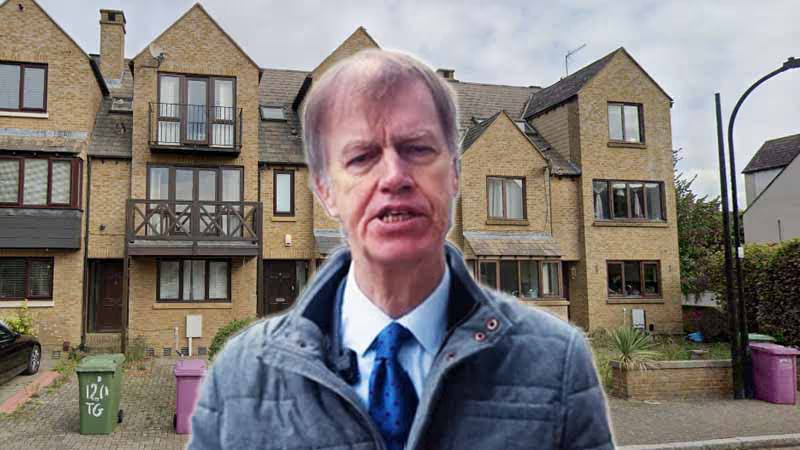According to the findings of recent research commissioned by infinitSpace, in partnership with The Instant Group, the majority of UK office landlords have not made any concrete plans to improve the energy efficiency ratings of their buildings '� they do not have any form of sustainability strategy in place.
The survey defined a 'sustainability strategy'� as the landlord or tenant having several policies in place with an overall aim of reducing greenhouse emissions and/or promoting environmentally friendly practices.
There are many ways office landlords and their tenants can work towards sustainability by making plans to help the country meet it's environmental net zero target. Perhaps the greatest impact they can have here is by achieving a higher EPC rating for their building. Indeed, this is a pressing legal requirement and one which is being steadily tightened-up by Government regulation.
From April 2023, the minimum energy efficiency standard (MEES) that already makes it unlawful for a landlord to grant a new tenancy, or extend an existing tenancy on a poorly performing building, will be tightened further in England and Wales.
Subject to a few exemptions (leases of less than 6 months, or more than 99 years, for example), landlords must not grant a new tenancy or continue to let any property after 1 April 2023 where the property has an EPC Rating below E.
If a landlord lets or continues to let a property in breach of the Regulations the lease will still be valid but the landlord is liable to a hefty fine. For commercial buildings, any breach of up to three months could result in a fine of up to �50,000, with a maximum fine of �150,000 for letting for over 3 months.
The government is currently consulting about further measures towards its targets to enforce all commercial properties to achieve a minimum energy efficiency of EPC band C from 1st April 2027, rising to a minimum standard of EPC band B from 1st April 2030.
Who bears the cost?
Exactly who bears the cost '� landlord or tenant - of reaching these increasing targets for a tenanted commercial buildings is unclear. This is an area that could become the subject of disputes particularly where the property is let under a longer lease. It is likely to come down to interpreting the clauses in the lease as to whether the work involved comes under the heading of repairs, improvements or a combination of these two categories, with the tax implications these carry.
This is something landlords need to contemplate when granting new leases, to decide whether to incorporate clauses government the costs involved in meeting future energy-efficiency targets for repairs / improvements in the future.
Extra funding resources
Unlike with residential property, there are no third-party funding resources available for these works for commercial buildings, which means they must be funded either by the landlord or the tenant or a combination of the two.
The seven-year rule
Installation of energy efficiency improvements will only be required for a non-domestic property where the recommended achieves an energy efficiency payback of seven years of less. However, energy efficiency improvements will only be required for a commercial building where the EPC recommended work will achieve an energy efficiency payback of seven years of less.
Improved measurements
Much scepticism has been written and recorded about MEES and the reliability of the required Energy Performance Certificate (EPC) ratings. On the Government's agenda is a push through on developing new energy measurement tools. However, experts are advising owners to look beyond the short-term and face the inevitable need to improve standards.
With improvements in technology it is becoming easier to install systems to measure and manage energy in commercial buildings. These changes need not involve significant investments and indeed small changes carried out over time and on a continuous bases can be both economic and allow owners to spread the costs over several accounts periods, all tax deductible.
Increasing awareness of energy costs
The cost of living crisis has heightened awareness of energy use and cost not just in the home but at work too. Money spent on insulation in all buildings has an immediate payback in terms of energy usage, reduced carbon emissions and cost. This awareness can lead to improvements in the ways people use their workplaces and to better collaboration between landlords and tenants.
Tenant preferences
Landlords are finding that tenants now favour buildings which are the most environmentally friendly, energy efficient and with good well designed state of the are occupier facilities. The investment required to achieved this is often repaid many times over by having fewer void periods and longer leases.
The infinitSpace study found that of 250 commercial landlords with offices in the UK:
- Only 30% have a sustainability strategy in place, meanwhile
- 42% have individual sustainability policies in place, but no overall strategy
- 23% are unaware if any sustainability policies are in place across their portfolio
- 5% have no sustainability policies in place
However, 48% recognise that having strong environmental policies is essential to attract tenants to a commercial property today. Of those with an occupancy level greater than 70%, over half (56%) have sustainability strategies in place '� almost double the average (30%).
The study from infinitSpace, creator of tech-enabled 'white-label'� flexible workspaces, and The Instant Group, a global marketplace for flexible workspace solutions, used independent market research firm Censuswide to survey 250 commercial landlords with offices in the UK.
It revealed that just 30% of UK office owners have developed a clear strategy to reduce overall greenhouse emissions or promote environmentally friendly practices. Two in five (42%) have one or more sustainability policies in place but no overall strategy, while a quarter (23%) are unaware of what sustainability policies are in place across their portfolio and 5% have no sustainability policies.
Despite this low uptake, almost half (48%) of the landlords surveyed did recognise that having strong policies is essential to keeping occupancy rates high. This was demonstrated by the correlation between landlords' occupancy levels and sustainability strategies. Of those with an occupancy level greater than 70%, over half (56%) have sustainability strategies in place '� almost double the average (30%). Comparatively, of those with an occupancy rate of less than 40%, almost half (46%) have no policies or are not aware of what they are.
Wybo Wijnbergen, CEO of infinitSpace, says:
'Sustainability is a key factor for businesses when selecting a workspace, and our research has clearly demonstrated that landlords which prioritise this will be rewarded with uptake in demand.
'But that is not the only reason landlords must have robust sustainability strategies in place. In the UK, the built environment is responsible for a quarter of all greenhouse gas emissions; so the real estate sector clearly has a key role to play in reducing emissions. infinitSpace and The Instant Group's research highlights that this cannot be achieved without helping office landlords to make their portfolios more sustainable.'�
Sam Pickering, Executive Director of Sustainability at Incendium (part of the Instant Group) says:
'It's undeniable that the right strategic advisory and investment in sustainability practices are mutually beneficial for both asset owners and the planet. The correlation between established sustainability strategies and higher occupancy rates as revealed in this research is significantly compelling.
'As the evolving world of work and prioritisation of sustainability continue to disrupt the real estate industry, office landlords and investors are at a crossroads. The time is now for owners and landlords to commit to long-term sustainability strategies. Otherwise, achieving targets will become more challenging or even missed, and they will get left behind. It requires a fundamental mindset and behaviour shift that puts sustainability at the core of business agendas and operating models.'�















.avif)
.avif)


















Comments